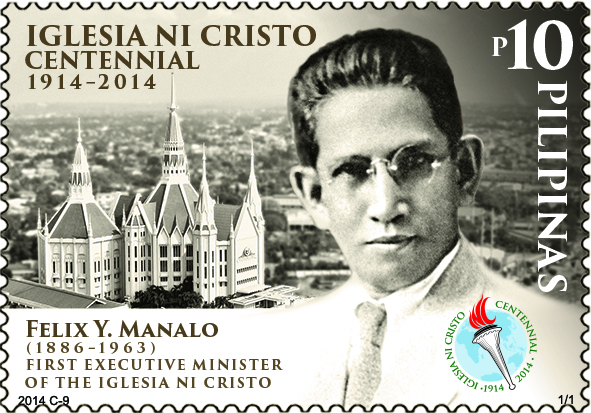Says act was “simply an acknowledgment of INC’s existence for a hundred years.”
(Eagle News) – The Supreme Court has junked the petition filed by a private citizen which questioned the Philippine Postal Corporation’s printing of the Iglesia Ni Cristo (INC) Centennial stamps in 2014.
In a 26-page decision, the high tribunal said that it found “no reason or basis” to grant the petition as it found no violation of the Constitution in the printing of the INC stamps. The Court said this had simply recognized the historical and cultural value of the INC’s 100th year anniversary.
“In refusing to declare unconstitutional the INC’s commemorative stamp, this Court is merely applying the jurisprudentially sanctioned policy of benevolent neutrality,” the SC decision read.
“To end, it bears to emphasize that the Constitution establishes separation of the Church and State, and not separation of religion and state.”
In junking the petition filed by a certain Renato Peralta, the SC affirmed the earlier decision of the Court of Appeals on the issue dated July 24, 2015 and the CA resolution dated March 8, 2016.
On May 10, 2014, the Philippine Postal Corporation issued the stamp commemorating the INC’s Centennial celebration that year. The design of the stamp showed a photo of INC’s first Executive Minister Brother Felix Y. Manalo, with the INC Central Temple in the background, and the INC’s centennial logo containing the words “Iglesia Ni Cristo Centennial 1914-2014.”
The petitioner Peralta claimed that the PhilPost’s issuance of the stamps was unconstitutional “because it was tantamount to sponsorship of a religious activity” and allegedly violated the constitutional doctrine on the separation of Church and the State.
He also claimed that this involved the disbursement of public funds.
But the Supreme Court noted that the printing of the INC’s Centennial stamps was “simply an acknowledgment of INC’s existence for a hundred years.”
“It does not necessarily equate to the State sponsoring the INC.”
“As to the use of the government’s machinery in printing and distribution of the 1.2 million stamps, this Court does not find that the same amounted to sponsorship of INC as a religion considering that the same is no different from other stamps issued by PhilPost acknowledging persons and events of significance to the country, such as those printed celebrating National Artists, past Philippine presidents, and events of organizations, religious or not,” the SC decision said.
The high court also noted that “Philpost has also issued stamps for the Catholic Church such as those featuring Heritage Churches, 15th International Eucharistic Congress, and Pope Francis.”
“In the past, the Bureau of Posts also printed stamps celebrating 300 years of Islam in the 1980s. Likewise, our review of the records does not disclose that PhilPost has exclusively or primarily used its resources to benefit INC, to the prejudice of other religions,” the SC said.
The SC noted that other than this single transaction, the Court “did not find PhilPost to have been unnecessarily involved in INC’s affairs.”

“Based on the foregoing, this Court is not convinced that PhilPost has actually used its resources to endorse, nor encourage Filipinos to join INC or observe the latter’s doctrines,” its decision read.
The Supreme Court also agreed with PhilPost that the printing of the INC’s commemorative stamp was “endeavored merely as part of PhilPost’s ordinary business.”
There was thus no illegal disbursement of funds, it said.
As to the design in the INC commemorative stamp, the Supreme Court said that this was “merely a recognition of the continuous existence of a group that is strictly Filipino.”
“To the mind of this Court, the use of the façade of the Church and the image of Felix Y. Manalo is nothing more than an acknowledgment of a historical milestone.”
“It does not endorse, establish or disparage other religious groups and even non-believers, especially considering the fact that PhilPost also print stamps with symbols which can arguably be connected to religion,” it added.
The SC decision was penned by Associate Justice Noel Tijam, and was concurred in by all of the other members of the high court, except for Associate Justice Marvic Leonen who issued a dissenting opinion.








